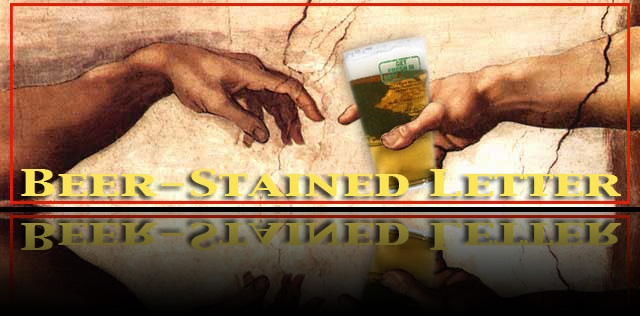It's official: New Jersey homebrewers are no longer legally obligated to pony up 15 bucks to the state to make their beer.
Governor Chris Christie has signed legislation to eliminate the 21-year-old permit requirement that most homebrewers had said fuhgettaboutit to in the first place, either because they never knew about it, or they had reservations about getting the state involved in their lives and their much-loved hobby.
On Monday without comment, Governor Christie signed the legislation that was introduced in spring 2011. The signing is noted on the governor's web site, amid a collection of other bills also getting his signature that day.
(If you're a craft beer enthusiast in the Garden State, it's hard to ignore the fact that Chris Christie has been a friend to beer since taking office in 2010. Last May he signed a proclamation for American Craft Beer Week in New Jersey; his lieutenant governor, Kim Guadagno, made a trip to Flying Fish Brewing last fall; and now the elimination of the homebrewing permit. That's more than any governor has done to give beer a boost since craft brewing was sanctioned in New Jersey in 1993.)
Homebrewing has had the blessing of the federal government since thoroughbred horse racing last had a Triple Crown winner (Affirmed), when Congress exempted 200 gallons made for personal consumption from taxation. New Jersey lawmakers said yes to the hobby 13 years later, in 1991.
However, there was a catch to Trenton giving its blessing, something that New Jersey homebrewing enthusiast Ed Busch, at the time a member of the American Homebrewers Association board of governors, saw as an unavoidable trade-off for getting lawmakers to go along with the idea officially green-lighting people making beer at home. (It should be remembered that after Prohibition, states were given great authority to regulate alcoholic beverages within their borders, and that Alabama still does not allow homebrewing, while Oklahoma finally relented in 2010.)
Thus the permit was born in the same breath as Trenton's proclaiming that making up to 200 gallons of homebrew per year was legal (echoing the federal law), thus giving Garden State homebrewers cover from overzealous local code enforcement officers who wanted to play revenuer.
Joe Bair, who opened his Princeton Homebrew shop in 1995, on Tuesday applauded the end of the permit, saying Ed had always envisioned it being scrapped at some point. Sadly, Ed died about five years ago, never seeing his intuition play out as reality.
"Ed Busch said it would eventually get changed, and I'm sure he's happy in his grave that it has," Joe says.
The biggest problem with the permit law, Joe says, was never the $15 fee imposed on homebrewers, but rather their taking a hit on their rights against search and seizure. Getting a permit meant state alcoholic beverage regulators could pay a call on you whenever they wanted.
"People were surprised when they got their permits in the mail to find that out," Joe says.
To the state's credit, the Division of Alcoholic Beverage Control kept its distance from homebrewers. Still, the existence of the permit requirement, though often obscure, turned homebrewers who knew of the obligation into scofflaws when they ignored it.
"It wasn't because they didn't want to pay the money," Joe says. "It was they didn't want to give up their rights against search and seizure."














